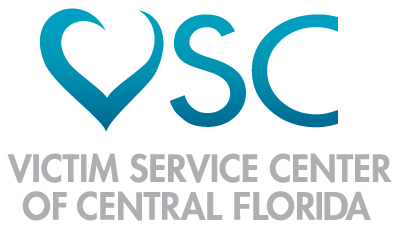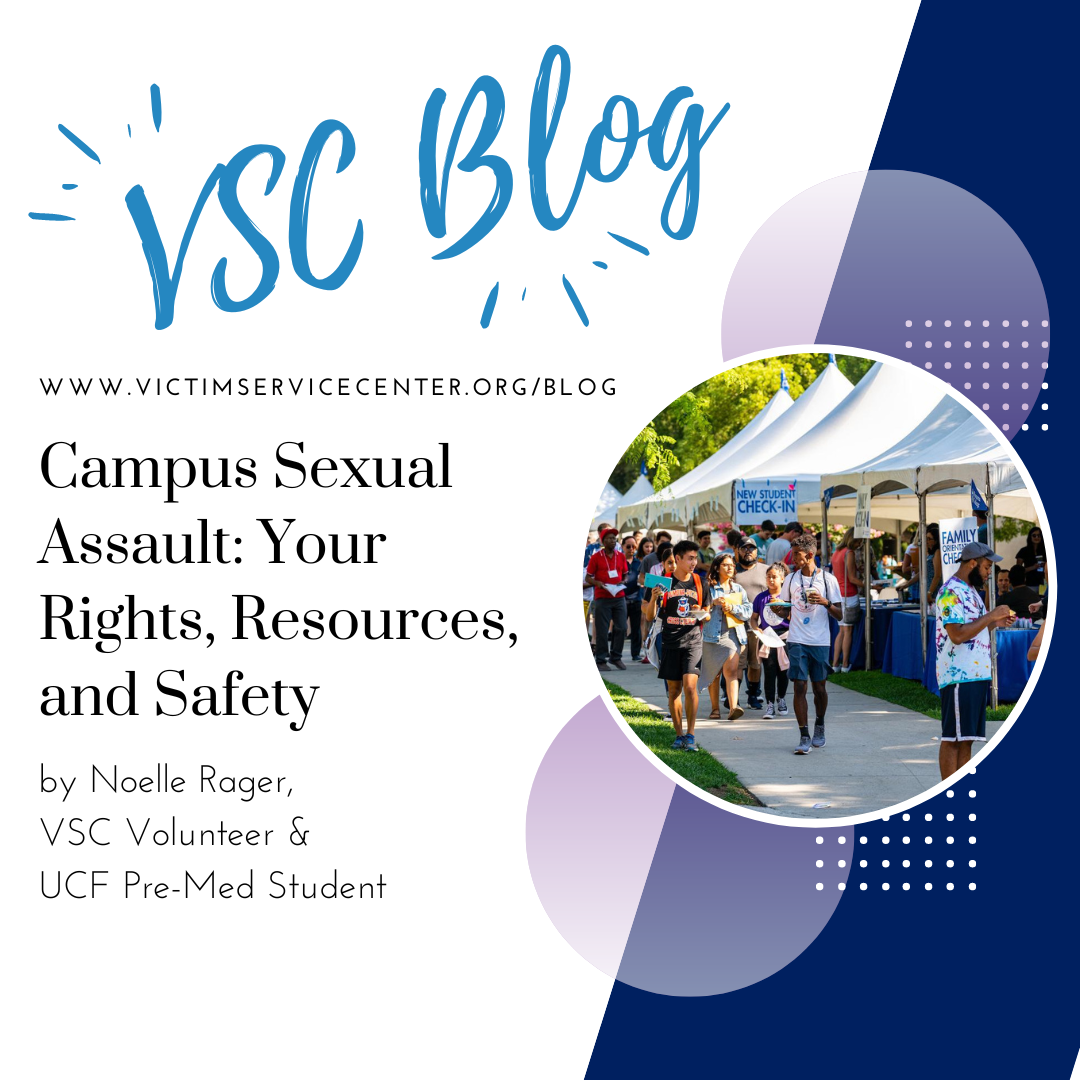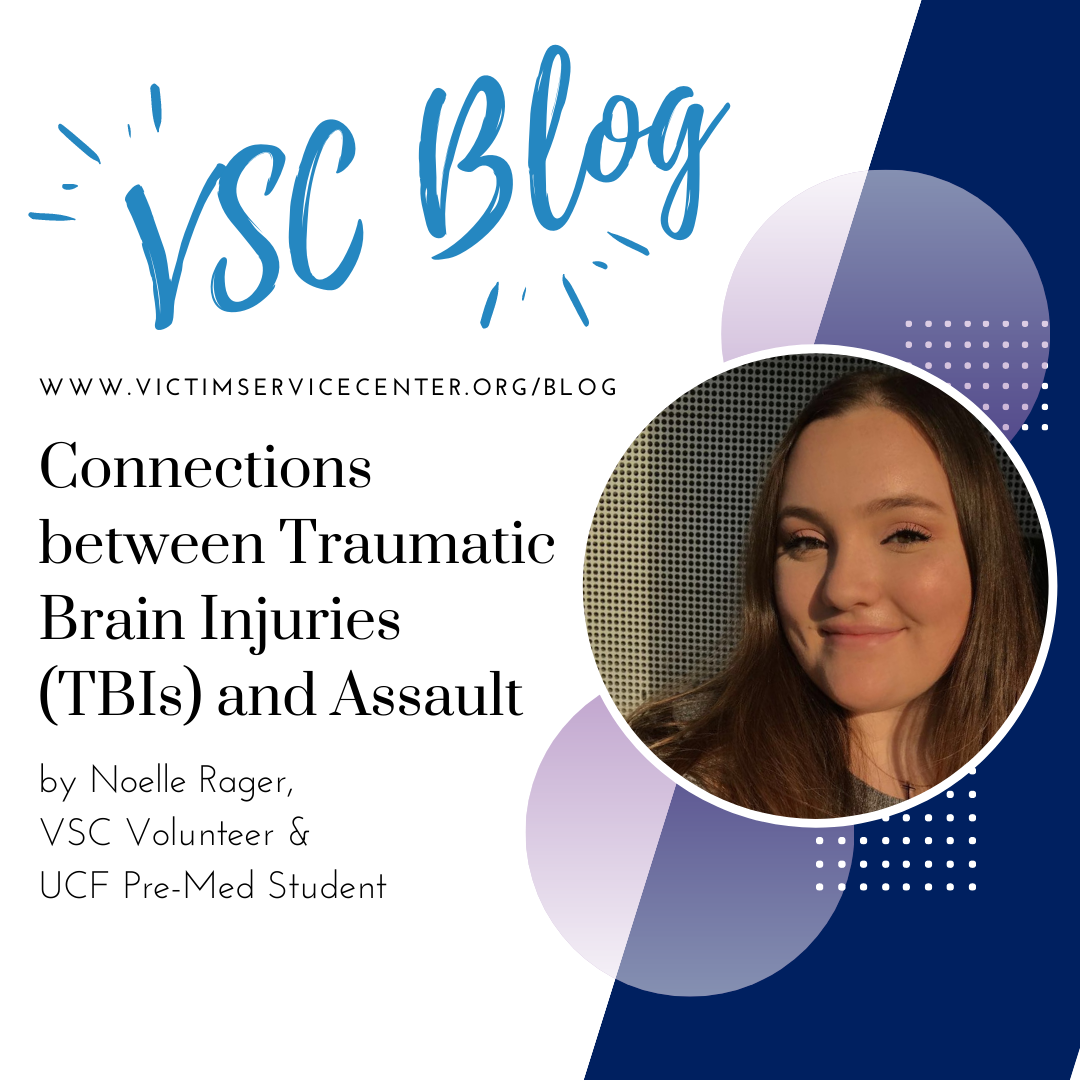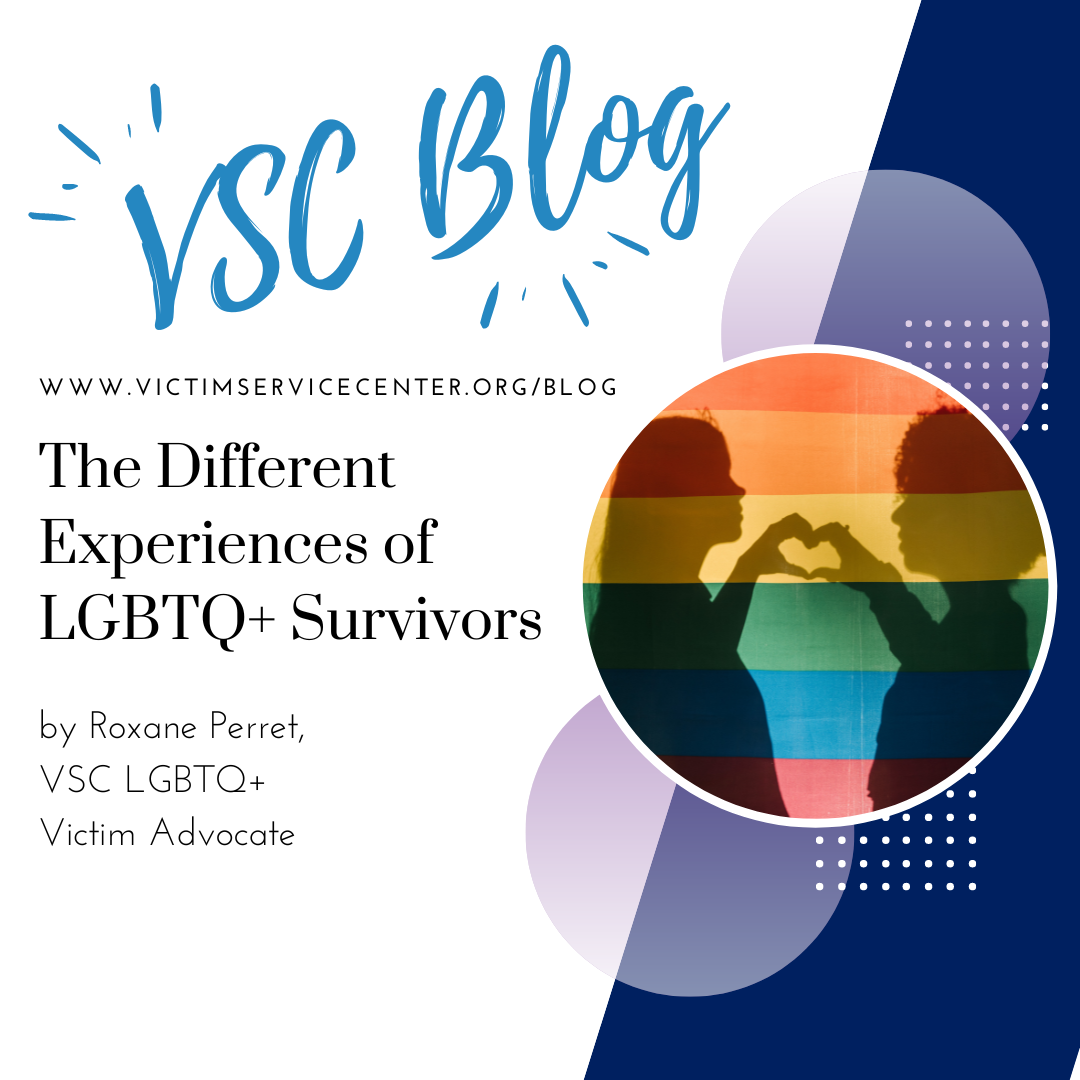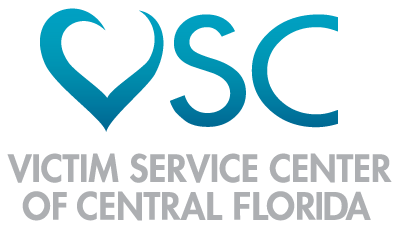by Sarah Moore, MA, former VSC therapy intern

I began as a volunteer with the Victim Service Center over a year ago and wrote the blogpost for 2019’s Minority Mental Health Awareness month (available by viewing VSC’s blog page). While so much has changed in this past year, so little has not changed. The further the year 2020 advances, between the COVID-19 pandemic and protests for racial equality occurring across all 50 states and around the world, the further the need for special recognition of mental health needs for minority populations, especially for BIPOC populations, comes more and more into mainstream focus.
Here’s what hasn’t changed:
The specific challenges in terms of understanding, resources, and access for minority populations—which includes racial, ethnic, economic, sexual/affectual, religious, gender, and disability status identities— have always existed in providing mental health care. While the vast majority of mental health care professionals (counselors, social workers, nurses, doctors, psychiatrists) have an explicit stance of wanting to further advance our understanding of cultural diversity in our training programs and professional associations, this is an easier task said than done. The realities of being socialized within a culture that prioritizes the needs of the White, Christian, middle-class, able-bodied, heterosexual, and cisgender people means that our mainstream understanding of mental health and psychological conditions are largely the result of our understandings of these populations. Training programs and professional organizations have dedicated to changing this norm over the past few decades through coursework, research, and ongoing educational requirements for professionals dedicated to furthering the mental healthcare field’s way of conceptualizing standards of health and wellbeing.
Despite the field’s good intentions and efforts, disparities in mental healthcare for minority clients still exists. This is the result of lack of financial access, lack of appointment flexibility, lack of training for healthcare providers holding a dominant identity for working with minority clients, and a gap in professional understanding of the presentation of symptoms in minority clients.
The status of minority mental health:
According to the Substance Abuse and Mental Health Services Administration (SAMHSA) and the CDC, feelings of anxiety or other symptoms of stress caused by a pandemic or other crisis may be stronger in some racial and ethnic minority groups.
Outside of the pressures of coping with a global pandemic with the potential associated grief through death, loss of community, isolation, unemployment, or other lack of support, health practitioners are less able to give accurate diagnosis or adequate treatment for clients who are members of minority populations (see data gathered from the US Department of Health and Human Services Office of Minority Mental Health for more details).
In general, racial and sexual minority groups report higher levels of anxiety, depression, suicidal ideation or completed suicides, post-traumatic stress disorder, and other mental health concerns. Cultural and societal oppression may lead to feeling unsafe or other feelings including shame, isolation, anxiety, and depression, which negatively impact an individual’s overall well-being and deplete an individual’s coping mechanisms in times of stress or crisis.
Barriers to seeking mental health care:
Even though treatment exists and healing is possible, there are several barriers to accessing mental health care. These barriers include:
• Lack of access to culturally competent, stigma-free mental health diagnosis and treatment
• Underutilizing mental health services and early termination of treatment (which may be the result of poor therapeutic alliance formed by the therapist)
• Financial cost or lack of insurance
• Social stigma shaming people who live with mental illness
• Office hours and location of treatment
For LGBTQ+ clients, there are additional concerns about experiencing homophobia or transphobia in the counseling relationship or a fear of being “outed” to family or insurance companies through the course of treatment. For clients living with a disability(ies), they may fear that the therapist will not understand or work with their disability, thereby discrediting an important element of their reality living in an ableist society.
For racial/ethnic minorities, there may be additional cultural barriers and cultural stigma impacting a person’s help-seeking behavior. These include:
• Conceptualization about the causes and cures of mental illness. For example:
• Some Asian cultures see no distinction between the physical and the mental. The “psyche and soma” are one in the same.
• Asian, Hispanic, and African American cultures may believe that mental illness can be treated through willpower and self-control rather than through an external helper like a counselor
• Cultural beliefs about seeking help. Mental illness is even more stigmatized in racial minority communities. For example:
• Asian Americans may be concerned about the “loss of face,” or social image necessary for group cohesion, if a person acknowledges a need for help outside the family or group.
• Mistrust of the mental health system because of injustices the field of psychology has done to racial minorities in the past, such as misdiagnoses, assessments based on White norms, and unethical research methods
• Therapy’s traditional focus on the individual’s thoughts and feelings goes against collectivist cultures’ focus on the group and family functioning. It may be harder to connect with an outsider (the therapist) about family or group dysfunction
• Language barriers (i.e., non-English speakers)
The structure of the mental health service field lacks an adequate number of culturally appropriate/sensitive services or bilingual and bicultural service providers, but most training programs now require specific courses in multicultural counseling to improve the field. If you are a member of a minority community, you deserve to receive treatment that works with—not against—your identity and your cultural values, norms, and expectations.
Here’s what has changed:
White supremacy and its associated systems of oppression (sexism, homophobia, ableism, etc) have always existed in America. Health disparities between advantaged and disenfranchised populations have always existed in America. With the COVID-19 pandemic, these realities were brought into focus when schools closed, unemployment increased, and hospitalizations increased for all Americans. We saw in real time how the intersection of identities—and therefore the intersections of structures of power which complicate access to resources like generational wealth and adequate health insurance—created very different experiences of the same pandemic in America.
And then George Floyd was murdered. And Breonna Taylor. And Brayla Stone. We learned about Elijah McClain. We remembered Sandra Bland and Tamir Rice and Trayvon Martin and too many more names and stories associated with violence and tragedy. America is once again reminded of the racial disparities which define the quality of life between White Americans and Black, Indigenous, and other people of color in America. While racial discrimination, rooted in the institution of White supremacy, are by no means new (nor the public health problem of police officers being more likely to kill Black men), the conditions of the pandemic (the very pandemic which is more likely to kill BIPOC!) put these issues to the forefront of the American consciousness. From where I sit as a White, middle-class, cisgender therapist, I see the nation and the mental health field itself reckoning with the realities of prejudice and discrimination enacted on the individual and the systemic levels in our personal and professional lives.
What has changed is the momentum of these movements for racial, economic, healthcare, environmental justice that is inclusive of the needs of LGBTQ+ and disabled peoples. This momentum must continue and must grow even stronger in order to accomplish the tasks we are charged with in making the world a better, safer, and healthier place to live. The need to focus on minority mental health care has never been stronger.
The Victim Service Center is here to help.
It is an unfortunate reality that chances of victimization are elevated for members of a minority community, be it from assault, abuse, molestation, hate crime, and other trauma that comes from being in a vulnerable position in society.
With Master’s-level trained advocates and therapists providing services, the Victim Service Center is dedicated to promoting minority mental health through direct service and advocacy. By providing free services to any victim or a violent crime or traumatic experience, VSC is cognizant of the financial burden that impacts an individual’s ability to heal. Additionally, we are proud to staff multiple bilingual victim advocates and therapists to recognize the needs of Spanish-speaking populations and are able to work with any language need through translation services. Through a partnership with the Zebra Coalition, we are also proud to staff an advocate specifically dedicated to working with LGBTQ+ clients, though any of our advocates and staff are ready and able to work with any client seeking services.
If you are ready to embark on your journey towards healing, call our office at 407-254-9415 to set up an appointment. If you or a loved one is currently experiencing a crisis related to victimization, you can reach a crisis counselor immediately on our 24/7 hotline at 407-500-HEAL.
